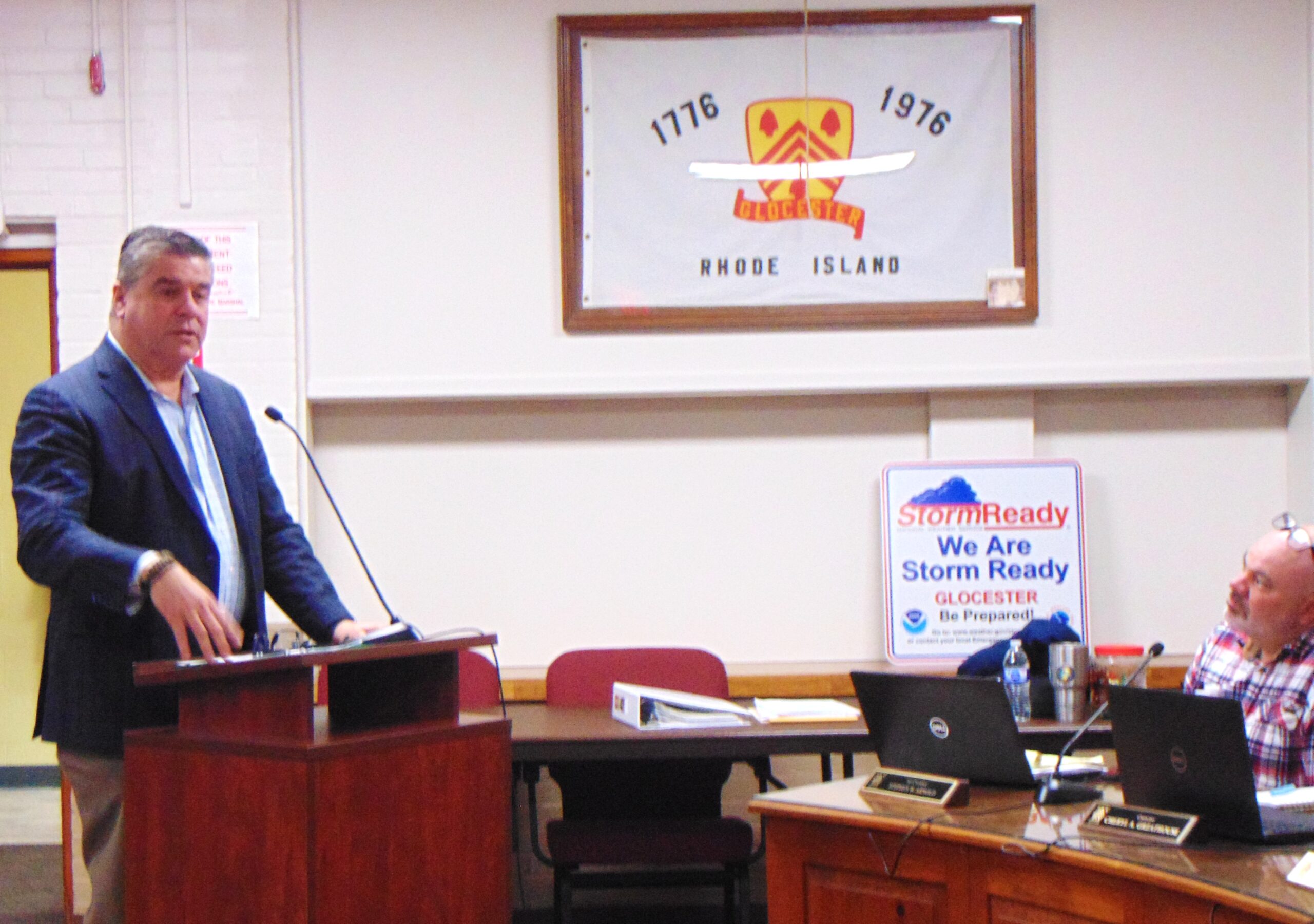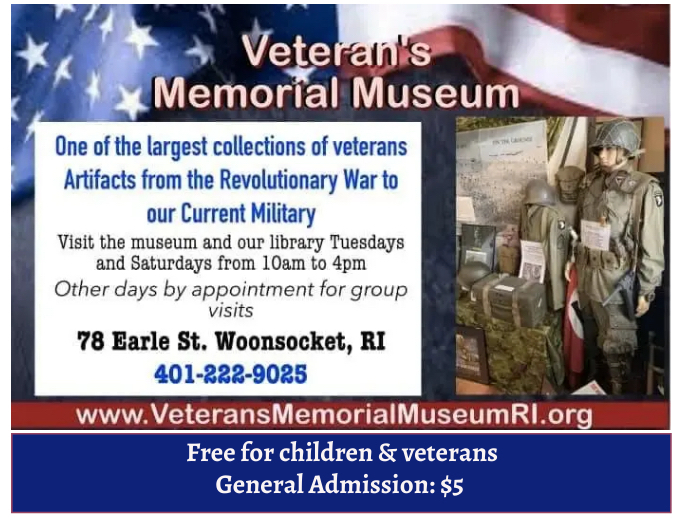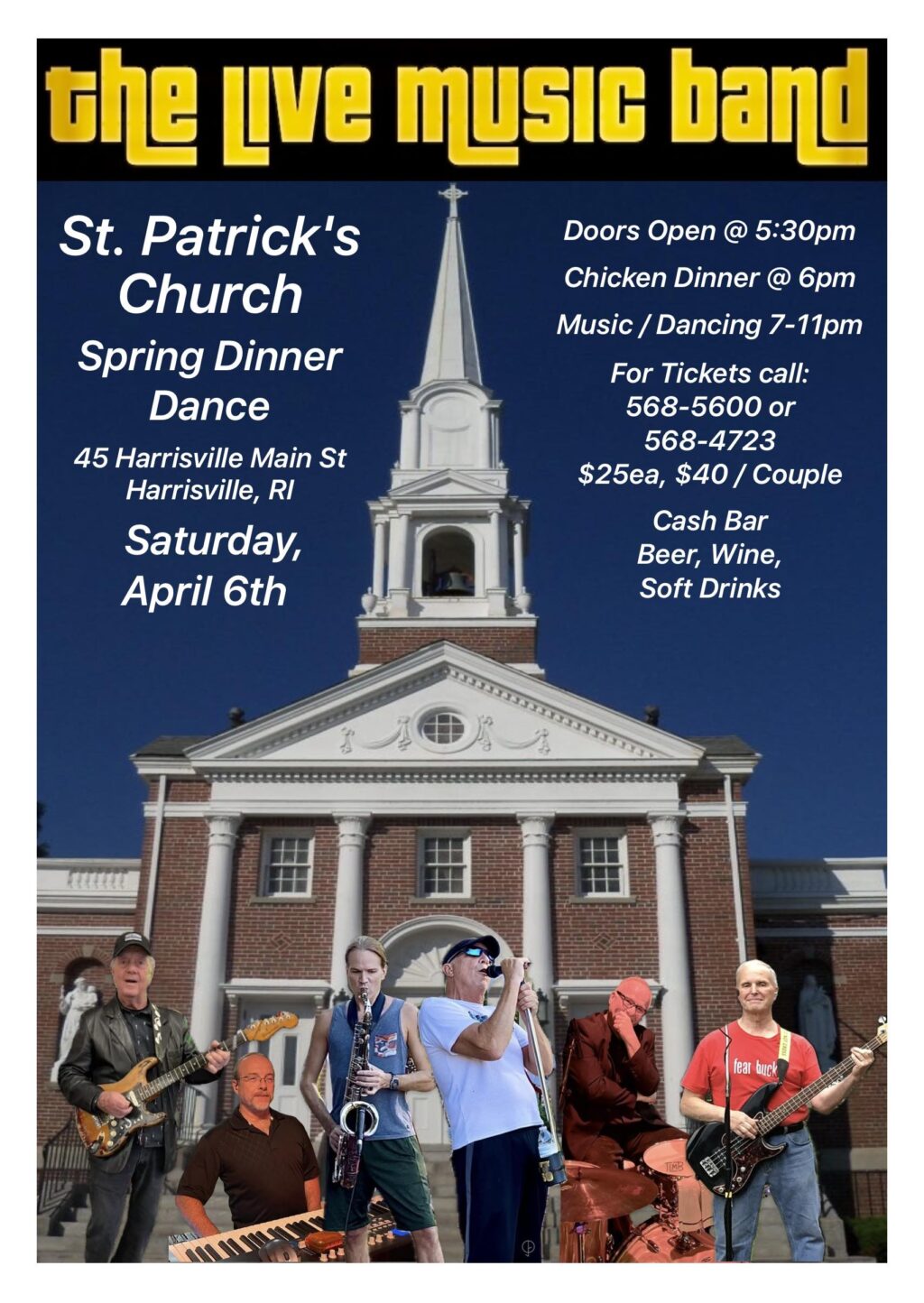
GLOCESTER – The Glocester Town Council previously questioned whether it was worth continuing their membership in the Rhode Island League of Cities and Towns, especially after the state legislature passed changes to zoning laws that caused a myriad of problems for rural towns. At their recent meeting, an official from the advocacy group provided an answer.
“We don’t want the state to take away our management rights from cities and towns – or anything from cities and towns,” Ernest Almonte, executive director for the league told the council. “We have access to the people. We want to be able to make our own decisions and be innovative without the state telling us what to do, and we don’t want unfunded mandates.”
“Those are… our overarching principles,” said Almonte. “But, we need to know from you if there is a piece of legislation out there that is really bothering you, just to let us know what the issue is. Maybe we can get it modified, maybe we can get regulations passed to modify it for your community, but we don’t know unless you tell us.”

The league also makes towns and cities aware of federal and state grants, what’s available and how to apply for them, the director noted. In March, the organization has planned an all day affair at the Crowne Plaza, where representatives from towns and cities can meet state officials to make contact, share their concerns and get questions answered.
“Almost everyone in the government – municipal, and state, and local government, and the federal government – comes to this event,” Almonte said. “It’s your chance to walk around and network with the leaders, the movers and shakers who get things done. If there’s anybody you need to meet, all you have to do is tell myself or Dave (Bodah, Associate Director), we can pull them aside to have a conversation with them.”
Almonte explained that the league is in constant contact with the governor and state officials bringing to their attention the needs and concerns of all 39 municipalities. He said that means not just the major cities and towns, but rural communities as well.
“It’s an opportunity to work together in a cooperative manner to solve problems that maybe only relate to one town, but now we can reach out to the 39 cities and towns to help out,” said Almonte, who took over as director last year.
Last year, he explained, the league started a rural community group to specifically address the needs and concerns of rural communities across the state.
“We heard the buzz that a lot of people think everything is about Providence, Warwick and those major cities; so, we started a rural community group,” said Almonte.
The plan, he said, is to meet every quarter to hear concerns and address issues. The first meeting recently took place in Smithfield, but Almonte noted that not many people attended. Town Council President William Worthy suggested the timing was not convenient for some towns, such as Glocester, since the meeting took place at 10 a.m. during the week. Everyone on the council, Worthy added, has full-time jobs. Almonte said the next meeting will be virtual so everyone can participate, and that changing the time might help. The meetings help clarify issues and inform towns about potential impacts of pending bills and other legislation.
“We’re going to let you know the legislation that is out there, how it can impact your community, get feedback from all of you, what you want us to do,” he explained. “Are you for it? Against it? Where do you want us to be? And to send that message. We’re willing to do it. We’re happy to do it. Just let us know.”
“We’re different than a lot of others,” responded Worthy referencing other Rhode Island towns. “A lot of people move out here because they kind of don’t want to be on top of other people. They want to have some land. We don’t have water. We don’t have town sewer; so, we’re kind of held back in some ways, but a lot of people actually enjoy that type of lifestyle. But when a lot of those zoning issues came up this year, we just had it all taken. We didn’t have a voice.”
Worthy added that forging relationships with other rural towns is important, and might help in the future to address issues.

Almonte pointed out that 15 new bills are being introduced to the legislature. The league will be reviewing them, he said, and would like to hear from Glocester on how they feel about them.
Almonte said the town should designate a person in the local government to whom the league should send all information. In some cases, that is easy, such as in towns that have managers, he noted. The council agreed that the information should be sent to Town Clerk Jean Fecteau, who can then forward it to councilors and other personnel for their input. Bodah, said Almonte, will send a basic explanation of how bills impact rural towns, in particular, and how they can address them if necessary. That includes sharing how other similar towns are addressing the issue through regulations to make it easier to create solutions.
“It’s not a one size fits all,” said Almonte. “It’s not a homogeneous group – the 39 cities and towns. Budgets are small and large. Staffs are small and large. You can’t have one solution that meets the needs of all 39. That’s what we’re there for. We need to know how it helps or hurts you so we can relay that message to them.”
Telling legislators that a particular bill hurts 17 municipalities has a different impact, he added.
Council Vice President Stephen Arnold agreed.
“I would like to lean on you more and ask for a louder voice from you guys to represent that we have different challenges,” he told Almonte. “When the state takes away our right to manage our own town…we really need to work through this. That’s our biggest challenge. It’s something you guys could help us with.”







How about allowing property owners to do what the wish with their own properties. Just like the town doesn’t like to be told what to do by the state, property owners don’t like the town telling them what to do with the land they own. While leaving zoning decisions up to a group of townspeople seems like a great idea, the role is volunteer, and members are frequently absent from meetings.
Speaker of the House is attempting to make small, rural communities into urban environments. The RI Builders Association lobbyists are in all the right politicians pockets filling the purse strings, driving all the housing changes, creating greater population densities in areas that cannot support it and usurping each towns local zoning laws.
Should be criminal?